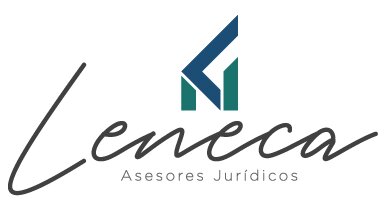Best Employment & Labor Lawyers in Chia
Share your needs with us, get contacted by law firms.
Free. Takes 2 min.
List of the best lawyers in Chia, Colombia
About Employment & Labor Law in Chia, Colombia
Employment and labor law in Chia, Colombia is governed primarily by national legislation under the Colombian Labor Code, with oversight from local authorities. Chia, located just outside Bogotá, is a growing municipality that follows the same and regulations as the rest of the country, with some adaptations to local business practices. These laws are designed to protect the rights of both employees and employers, ensuring fair working conditions, equitable remuneration, and conflict resolution mechanisms. The legislation covers topics such as hiring processes, work contracts, wages, working hours, workplace safety, discrimination, and termination of employment.
Why You May Need a Lawyer
There are several situations in which individuals or businesses in Chia may require assistance from an employment and labor lawyer. Common reasons include disputes over employment contracts, wrongful dismissal claims, severance pay disagreements, issues with unpaid wages or benefits, workplace discrimination or harassment, occupational health and safety concerns, and guidance on employee rights during restructuring or downsizing. Employers may also need legal guidance to ensure compliance with current labor laws, avoid penalties, and correctly manage labor relations. A lawyer can help negotiate settlements, represent clients in legal proceedings, and provide advice on preventative policies to avoid future legal challenges.
Local Laws Overview
Key aspects of employment and labor law in Chia are directed by Colombia’s Labor Code, supplemented by constitutional rights and regulations issued by the Ministry of Labor. Some particularly relevant areas include:
- Employment Contracts: All arrangements, whether verbal or written, must comply with legal minimums on wages, benefits, and employee protections.
- Minimum Wage: The national minimum wage applies to Chia and is updated annually by the Colombian government.
- Working Hours: Standard workdays are 8 hours, with a maximum of 48 hours per week. Overtime must be compensated according to the law.
- Social Security and Benefits: Employers are required to enroll employees in the health, pension, and occupational risk systems.
- Termination of Employment: Rules are clear regarding justified causes for dismissal, procedures for termination, and calculation of severance and other legal benefits.
- Health and Safety: There are strict regulations on workplace safety, employer obligations in case of accidents, and employee rights to a healthy work environment.
- Non-Discrimination: Labor laws prohibit discrimination based on gender, age, religion, race, or political opinion.
Local authorities, such as inspection offices, complement national institutions to ensure compliance in Chia.
Frequently Asked Questions
What are the main types of employment contracts in Chia, Colombia?
The two main types are fixed-term contracts and indefinite-term contracts. There are also contracts for specific projects and, less commonly, apprenticeship contracts. Each type has different rules for termination and renewal.
Can my employer dismiss me without cause?
Employers can terminate contracts but must either have a legally recognized cause or, in the absence of cause, pay the corresponding severance and legal benefits. Unjustified dismissal can be challenged in labor courts.
What is the current minimum wage in Chia?
The minimum wage in Chia is set by the Colombian national government and is updated every year. It is the same as the national rate. Check with the Ministry of Labor for the current value.
How is overtime compensated?
Work exceeding the legal maximum of 8 hours per day or 48 hours per week is considered overtime. Overtime must be paid at higher rates, which vary for night work and work on Sundays or holidays.
What mandatory benefits must my employer provide?
Employers must provide social security coverage (health, pension, occupational risks), severance pay, interest on severance, legal bonuses, vacation, and mandatory holidays.
What should I do if I am not being paid my salary?
First, try to resolve the issue directly with your employer. If unsuccessful, you may file a complaint with the local labor inspector or the Ministry of Labor. A lawyer can assist with further legal action if needed.
Are employers required to enroll employees in social security?
Yes, all employers must register their employees in the social security system, covering health care, pensions, and workplace risk insurance.
How are workplace accidents handled?
Employers must report accidents to the occupational risks administrator (ARL) and provide medical attention. If injuries or illnesses are related to the job, workers are entitled to compensation and protection.
Is workplace discrimination illegal?
Yes, Colombian law prohibits discrimination based on gender, age, ethnicity, religion, or political beliefs. Victims can seek legal protection through complaints and litigation.
How can labor disputes be resolved?
Disputes may be resolved through direct negotiation, mediation by the labor inspector, or by taking the case before labor courts. Legal representation is recommended, especially for complex cases.
Additional Resources
If you need more information or support regarding employment and labor matters in Chia, consider contacting the following organizations:
- Ministry of Labor (Ministerio del Trabajo): The main governmental authority for labor issues in Colombia.
- Local Labor Inspector's Office (Inspección de Trabajo de Chía): Handles complaints and monitors workplace compliance in Chia.
- Colombian Family Welfare Institute (ICBF): Handles issues related to child labor and family rights.
- Colombian Workers’ Confederations and Unions: These can offer advice to unionized employees.
- Chamber of Commerce of Chia: Provides business support and may guide labor relations for local businesses.
- Legal Aid Societies: Offer free or low-cost legal advice for individuals with limited means.
Next Steps
If you believe you need legal assistance in employment and labor matters in Chia, take the following steps:
- Gather all relevant documents, such as your employment contract, salary records, correspondence, and any evidence of workplace incidents.
- Contact a local labor lawyer for an initial consultation to discuss your case and get professional guidance.
- If the issue can be resolved amicably, attempt direct negotiation with your employer or employee.
- If negotiations fail, file a complaint with the local labor inspector or seek guidance from the Ministry of Labor.
- For complex cases or when your rights are at risk, proceed with formal legal action with the help of your attorney.
Remember that Colombian labor laws protect your rights as a worker or an employer. Swift action and proper legal advice can help you resolve disputes efficiently and avoid unnecessary complications.
Lawzana helps you find the best lawyers and law firms in Chia through a curated and pre-screened list of qualified legal professionals. Our platform offers rankings and detailed profiles of attorneys and law firms, allowing you to compare based on practice areas, including Employment & Labor, experience, and client feedback.
Each profile includes a description of the firm's areas of practice, client reviews, team members and partners, year of establishment, spoken languages, office locations, contact information, social media presence, and any published articles or resources. Most firms on our platform speak English and are experienced in both local and international legal matters.
Get a quote from top-rated law firms in Chia, Colombia — quickly, securely, and without unnecessary hassle.
Disclaimer:
The information provided on this page is for general informational purposes only and does not constitute legal advice. While we strive to ensure the accuracy and relevance of the content, legal information may change over time, and interpretations of the law can vary. You should always consult with a qualified legal professional for advice specific to your situation.
We disclaim all liability for actions taken or not taken based on the content of this page. If you believe any information is incorrect or outdated, please contact us, and we will review and update it where appropriate.
Browse employment & labor law firms by service in Chia, Colombia
Chia, Colombia Attorneys in related practice areas.









